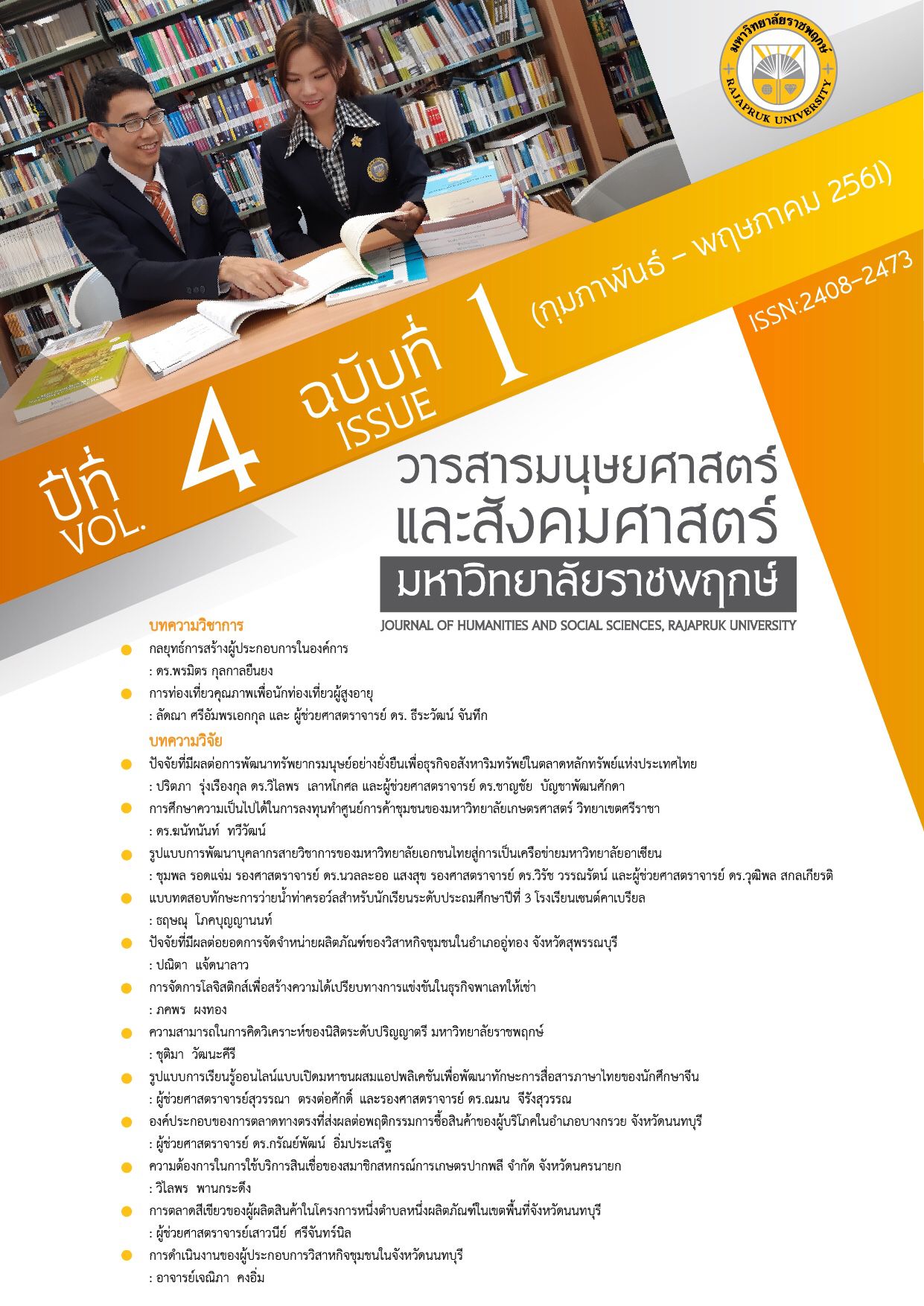Green Marketing of the Product Producers of One Tambon One Product (OTOP) Project in Nonthaburi Province
Main Article Content
Abstract
This study investigated the green marketing of the product producers of One Tambon One Product (OTOP) project in Nonthaburi Province. The 250 convenience samples of the product producers of One Tambon One Product (OTOP) project were drawn from Nonthaburi Province area using Taro Yamane formula. Data analysis was performed by using percentage, mean, Standard Deviation (SD) and One-way ANOVA.
The results of the research found that; most of the product producers of OTOP were female, aged between 36 – 45 years old holding the Bachelors’ degree, working experience 5 – 10 years. Most of the products were food business with capital less than 200,000 Baht, 1 – 5 years business operation, and 5 – 10 employees.
As a whole, the One Tambon One Product project was a great deal of green marketing and it was at a high level at each aspect, such as environmental responsibility. In other words, it should encourage to find the ways to improve the reuse resource for environmental protection and consider the importance of environmental conservation. For example, the green marketing mix, such as packaging should make from the simple biodegradable materials. The manufacturers of One Tambon One Product with different types of business, asset size, duration of business, and the number of employees had a comment about green marketing with different statistic significant at .05 level.
Article Details
References
ตรีทิพ บุญแย้ม. (2554). รูปแบบการบริโภคสีเขียว. มหาวิทยาลัยกรุงเทพ.
ปรวรรณ อภิวันท์. (2547). การวิเคราะห์ปัจจัยที่มีอิทธิพลต่อความต้องการซื้อผลิตภัณฑ์หนึ่งตำบล หนึ่งผลิตภัณฑ์ในจังหวัดลพบุรี. การศึกษาปัญหาพิเศษปริญญาบริหารธุรกิจ มหาบัณฑิต เศรษฐศาสตร์ มหาวิทยาลัยเกษตรศาสตร์.
ศิริวรรณ เสรีรัตน์. (2538). พฤติกรรมผู้บริโภค. กรุงเทพฯ: ไทยวัฒนาพานิช.
Apiwan, P. (2004). Factors Influencing Buying One Tambon One Product in Lopburi Province. Bachelor of Business Administration. Program in Special Problems Study. Master Economics. Kasetsart University. (in Thai)
Boonyaem, T. (2011). Green Consumption Pattern. Bangkok University. (in Thai)
Grundey, D., and Zaharia, RM. (2008). Sustainable Incentives in Marketing and Strategic Greening: the Cases of Lithunia and Romania. Technological and Economic Development. 14 (2): 130 - 143.
Petersen, D. (1978). Techniques or safety Management. Koga Rusha : McGraw-Hill.
Siriwan, S. (1995). Consumer Behavior. Bangkok: Thaiwatanapanich. (in Thai)
Tiamtong, K. (2003). Clean Technology Concept. Retrieved April 16, 2015, from http://www.thaienvironment.net (in Thai)


